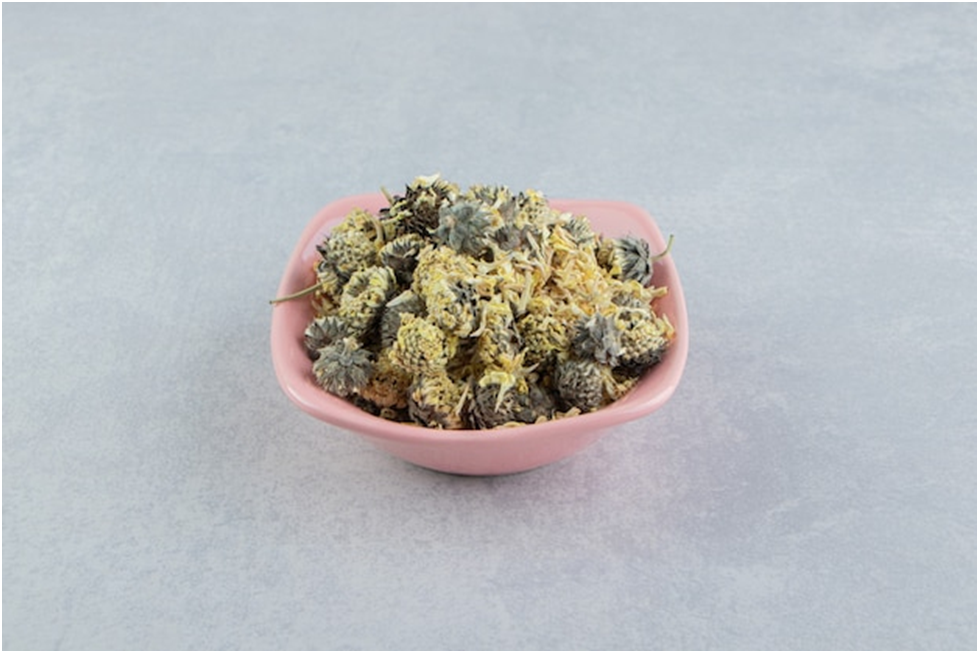There is an ongoing search for new substances and discoveries in the cannabis sector. One of the more recent findings is the presence of THCA, a non-psychoactive cannabinoid, in raw cannabis plants. Tetrahydrocannabinol, or THC, is the most well-known psychoactive ingredient in cannabis and typically is the star of the show for those who are familiar with it. However, THCA is quickly gaining popularity due to its possible medicinal and health benefits without producing a high.
We’ll explain exactly what THCA flower is, how it varies from THC, and why cannabis lovers are starting to favour it in this blog.
What Is THCA?
One cannabinoid included in raw cannabis is called THCA. It is the precursor of THC, which is what most people think gives marijuana its euphoric effects. THCA has no “high” or mind-altering effects in its natural state. This is due to a failure in binding to the brain’s CB1 receptors, which are in charge of creating the euphoric effects linked to THC.
THC is produced from THCA when cannabis is cooked or exposed to sunlight for an extended period. This process is known as decarboxylation. The psychoactive effects of THC are induced by this process, which is why smoking or vaping cannabis is a common way for people to become high for recreational purposes. On the other hand, THCA provides possible medicinal benefits without producing the high that many users may wish to avoid when it is left in its raw form, as in THCA flower.
What Is THCA Flower?
Cannabis flowers that have not gone through the decarboxylation process are THCA flowers. This indicates that while the plant material has a high THCA content, it has little to no active THC. By keeping the flower in its natural state, users can access a variety of therapeutic properties without the euphoric effects of THC.
Those seeking the medical uses of cannabis without the want to get high often source high quality THCa flower in Illinois (or elsewhere) and use this strain. The flower can be consumed in several ways that maintain its THCA content, including tinctures, low-heat juicing,
and other uses.
The Potential Benefits of THCA Flower
While THCA research is still in its infancy, preliminary findings and anecdotal data point to various possible therapeutic benefits for THCA. The following are a few of the most notable health benefits:
1. Anti-Inflammatory Properties
Numerous long-term conditions, such as arthritis, autoimmune diseases, and heart diseases, are mainly caused by inflammation. Because of its anti-inflammatory qualities, THCA may be a helpful treatment for inflammatory conditions, including chronic pain. After adding THCA flowers to their wellness routine, many people feel less sore in their muscles and joints.
2. Neuroprotective Effects
Some studies suggest that THCA may help protect the brain and nervous system from damage, making it a potential ally in preventing neurodegenerative diseases like Alzheimer’s and Parkinson’s. This neuroprotective effect could be attributed to THC’s capacity to decrease inflammation and oxidative stress in the brain.
3. Anti-Emetic Properties
As an anti-emetic, THCA shows promise in lowering nausea and vomiting. This could be particularly helpful for patients receiving therapies such as chemotherapy, which often have difficult adverse effects. For individuals seeking relief, the THCA flower offers a mild, natural cure that lessens nausea without euphoria.
4. Appetite Stimulation
Like THC, THCA has been shown to increase appetite. This can be especially beneficial for people who have medical conditions like cancer or persistent diseases that cause them to lose weight or have trouble eating. THCA is a more adaptable option for users because it increases appetite without getting them high.
5. Potential for Muscle Spasm Relief
THCA Flower has helped some users with cramps and muscle spasms. This may be especially helpful for people who struggle with muscle control, such as those who have muscular dystrophy or multiple sclerosis.
How to Use THCA Flower
The flexibility of the THCA flower is one of its unique qualities. THCA flower can be ingested in a variety of ways to preserve its non-psychoactive properties, in contrast to regular cannabis, which is often inhaled or vaped for the psychoactive effects of THC.
Raw Consumption: Eating THCA flowers raw is one of its most common uses. The raw cannabis plant can be juiced for this purpose, or it can be used in smoothies and other dishes. The ingestion of THCA in its raw form ensures that it does not undergo conversion to THC when heated.
Low-Heat Methods: Eating THCA flowers raw is one of its most common uses. The raw cannabis plant can be juiced for this purpose, or it can be used in smoothies and other dishes. The ingestion of THCA in its raw form ensures that it does not undergo conversion to THC when heated.
Topical Applications: Some users choose to use THCA flowers topically as lotions, balms, or creams. These items can be used directly on the skin, where the THCA can be absorbed, to help with localized inflammation and pain relief.
Tinctures and Extracts: Another well-liked choice is THCA flower tinctures and extracts. These liquid products are typically taken under the tongue or added to food and beverages. This approach allows the correct dosage to be given with a long-lasting, non-psychotic impact.
THCA Flower vs. CBD
It’s crucial to remember that THCA and CBD (cannabidiol), two other non-psychoactive cannabinoids, each have particular benefits. Although THCA has the extra potential for neuroprotective and anti-emetic actions, it delivers many of the same benefits as CBD, including pain relief, relaxation, and anti-inflammatory effects.
Some consumers favor the THCA flower because it contributes to the “entourage effect,” which is the term used for how the many cannabinoids in raw cannabis relate to one another to increase the therapeutic effects of the plant.
Also Read: Is CBD Chocolate Right for You? Factors to Consider
Legal Considerations of THCA Flower
Some consumers favor the THCA flower because it contributes to the “entourage effect,” which is the term used for how the many cannabinoids in raw cannabis relate to one another to increase the plant’s therapeutic effects. FDA regulations are essential to the knowledge and marketing of these products because they guarantee that claims regarding their therapeutic effects are supported by data and adhere to safety regulations.
Conclusion
With the potential to provide the medicinal benefits of cannabis without the euphoric effects of THC, the THCA flower is quickly becoming a potent weapon. THCA has several health advantages that can enhance general well-being, including reducing nausea and muscle spasms and its anti-inflammatory and neuroprotective qualities.
For those who are new to cannabis or experienced users searching for a non-psychoactive substitute, THCA Flower offers a safe and efficient choice. THCA flower has the potential to become a mainstay in the cannabis wellness scene as more studies are done and its benefits become apparent.


